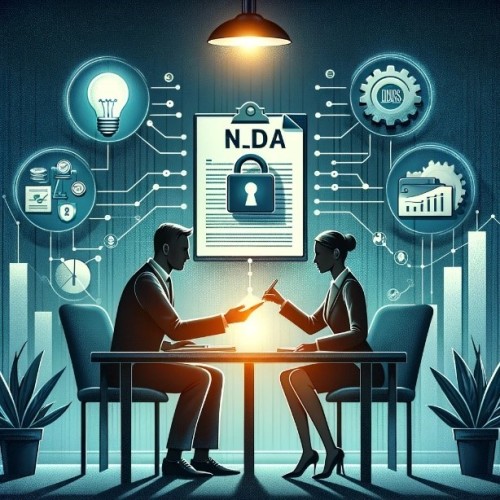In today’s fast-paced business world, protecting your sensitive information is more crucial than ever. This is where a Non-Disclosure Agreement (NDA), also known as a confidentiality agreement, plays a pivotal role. But what exactly is an NDA, and when do you need one? Let’s dive in.
What is a Non-Disclosure Agreement?
An NDA is a legally binding contract that ensures the confidentiality of sensitive information shared between parties. It’s the safeguard you need when you intend to disclose confidential information to another party but require them to keep it under wraps.
Key Elements of an NDA:
- Confidentiality: The core purpose of an NDA is to ensure that the information you share isn’t disclosed to others without your consent.
- Additional Terms: NDAs can include clauses beyond mere non-disclosure. For instance, they can prohibit the solicitation of your employees by the party receiving the information.
- Consequences of Breach: An NDA usually outlines the steps you can take if the other party violates the agreement. This could include seeking an injunction or claiming damages.
Do You Need an NDA?
Determining the need for an NDA is a vital decision. Here’s when you should consider one:
When Sharing With External Parties: If you’re about to share sensitive data with someone outside your existing legal or business relationships (like a potential investor or buyer), an NDA is essential.
No Pre-existing Legal Relationship: In scenarios where there isn’t an existing contract that covers confidentiality with the other party, an NDA becomes crucial.
Common Scenarios for Using NDAs:
Selling Your Business: Before divulging details about your business to a potential buyer.
Seeking Investment: When you’re discussing potential investment with parties who aren’t yet legally bound to maintain confidentiality.
When You Might Not Need an NDA:
If you already have a legal relationship that encompasses confidentiality (like an employment agreement), a separate NDA might be redundant.
Final Thoughts
An NDA is a powerful tool in your business arsenal, crucial for protecting your proprietary information. It’s not just a piece of paper but a shield that guards your business’s sensitive details. Whether you’re in talks for selling your business, seeking investment, or embarking on a new partnership, understanding when and how to use an NDA can make all the difference. Remember, in the business world, it’s not just about having information but also about safeguarding it effectively.
Connect with us at Allied Legal on 03 8691 3111 or drop us an email at hello@alliedlegal.com.au to discuss how we can assist you in the preparation or reviewing of an NDA.
*The insights presented in this article are derived from ‘It Depends – What is a non-disclosure agreement?’ published to Mondaq by Keeghan Silcock on 3 November 2023.






